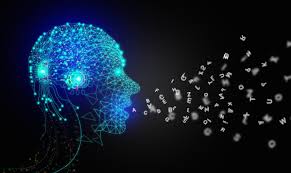Artificial intelligence has come a long way, and one of the most exciting advancements in recent years is Generative AI. This groundbreaking technology is transforming industries by enabling machines to create text, images, music, and even software code. But how does it work, and why is it so important?
This article explores the mechanics of Generative AI, its applications, and its impact on businesses and creativity.
What is Generative AI?
Generative AI refers to artificial intelligence systems that can generate new content from existing data. Unlike traditional AI, which focuses on pattern recognition and decision-making, Generative AI can create original and realistic outputs that resemble human-created content.
Popular examples of Generative AI include:
- GPT-4 – AI-powered language model for text generation
- DALL·E – AI-generated images and artwork
- DeepMind’s AlphaFold – AI-driven protein structure prediction for medical research
- GitHub Copilot – AI-assisted code generation for developers
By learning from massive datasets, Generative AI can understand and mimic human creativity, making it a game-changer for automation and innovation.
How Does Generative AI Work?
At its core, Generative AI relies on machine learning models, particularly deep learning techniques like neural networks. These models process vast amounts of data to recognize patterns and generate new content that is both meaningful and relevant.
The process typically involves:
1. Training the AI Model
Generative AI models are trained on large datasets containing text, images, or other content types. The model analyzes and learns from patterns in the data, enabling it to generate similar outputs.
2. Using Neural Networks
AI models use deep learning neural networks, such as Generative Adversarial Networks (GANs) and transformers, to refine their outputs. These networks allow AI to create realistic and high-quality content.
3. Generating New Content
Once trained, Generative AI can generate entirely new content, whether it’s a paragraph of text, a painting, or even a piece of music. It does this by predicting the most relevant next elements based on learned patterns.
4. Continuous Improvement
Through reinforcement learning, Generative AI models continue improving, refining their outputs to become more human-like and accurate.
Why Does Generative AI Matter?
Generative AI is more than just an interesting technology—it is reshaping industries and unlocking new possibilities.
1. Enhancing Creativity and Content Generation
Generative AI is being used to generate articles, marketing copy, and social media posts. Tools like GPT-4 allow businesses to create high-quality content faster and more efficiently.
In the creative industry:
- AI-powered tools assist artists and designers in generating unique images and videos.
- Musicians use AI-generated compositions to experiment with new sounds and melodies.
- Filmmakers leverage AI for scriptwriting, scene creation, and video editing.
2. Revolutionizing Automation and Productivity
Businesses are using Generative AI to automate routine tasks, customer interactions, and data analysis.
- Chatbots and virtual assistants provide instant responses to customers.
- AI-driven automation streamlines business operations, reducing costs.
- Generative AI-powered software accelerates programming and debugging.
By integrating AI-driven automation, companies can increase efficiency and reduce human workload.
3. Transforming Healthcare and Scientific Research
Generative AI is playing a vital role in drug discovery, medical imaging, and disease diagnosis.
- AI-driven tools help researchers predict molecular structures, accelerating drug development.
- AI-generated medical images aid doctors in diagnosing diseases more accurately.
- AI assists in personalized treatment planning, improving patient care.
With Generative AI, healthcare is becoming more precise, efficient, and accessible.
4. Personalizing Customer Experiences
Companies are using Generative AI to offer hyper-personalized recommendations and experiences.
- E-commerce platforms use AI to recommend products based on customer behavior.
- Streaming services use AI to suggest personalized movies, music, and TV shows.
- AI-generated chatbots offer personalized shopping and support experiences.
As AI understands user preferences, businesses can enhance customer engagement and loyalty.
Challenges and Ethical Concerns of Generative AI
While Generative AI offers remarkable benefits, it also presents challenges that must be addressed.
1. Ethical Concerns and AI Bias
AI models can inherit biases from training data, leading to unfair or misleading outputs. Developers must ensure AI systems are trained ethically and fairly.
2. The Spread of Misinformation
With AI-generated content becoming more realistic, there is a risk of deepfake videos, fake news, and misinformation. Ensuring responsible AI use is crucial.
3. Copyright and Intellectual Property Issues
Determining ownership of AI-generated content is complex. Legal frameworks need to clarify copyright laws for AI-generated works.
4. The Future of Human Jobs
As AI automates tasks, some job roles may become obsolete. However, new opportunities in AI development, monitoring, and ethics will emerge.
The Future of Generative AI
Looking ahead, Generative AI will continue to evolve, bringing more sophisticated, ethical, and human-like capabilities.
Future trends include:
- AI-generated virtual assistants becoming more conversational and intelligent.
- AI-driven creativity shaping art, literature, and entertainment.
- AI-human collaboration, where AI augments human creativity rather than replacing it.
- Regulations and ethical frameworks to ensure responsible AI usage.
As we move into an AI-driven future, businesses and individuals must adapt and leverage Generative AI responsibly.
Final Thoughts: The Power of Generative AI
Generative AI is transforming the way we create, work, and interact with technology. From automation to creative innovation, AI is enhancing industries and unlocking new possibilities.
By understanding how Generative AI works and its impact, businesses can stay ahead of the curve and embrace the future of AI-driven solutions.
Want to integrate AI-driven solutions into your business? Contact Adequate Infosoft today!
📞 +91-120-4198878









